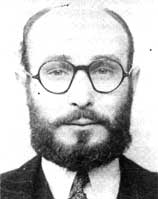Having spent the last few years publishing other people’s books, we decided it was about time we published our own. And we’re very excited with the result!

Read about the guy who saved us from World War Three, the woman who performed a caesarean on herself and the man whose love literally moved mountains. Then there’s the pilot who shot down his own plane and the woman who won the lottery four times.
What we discovered, in producing a book for ourselves, was that it’s still a lot of work! The writing, the editing, the design and layout – and setting the book up for print and ebook formats. But it’s also very satisfying.
You can read an extract below from the book, about an amazing but little-known WWII double agent:
Juan Pujol Garcia
The greatest double-agent on Earth

Unwilling to give up his dreams of becoming a spy, Pujol swiftly changed tactics and offered his services to the Germans instead, claiming that he was a Nazi sympathizer working for the Spanish government who made frequent trips to London. The lie was outrageous: not only did he not speak a work of English, but far from working in the government, Pujol’s previous job had involved chicken farming and managing a one star hotel in Madrid. Still, he forged a diplomatic passport to support his story and the Germans were fooled. They gave him an intense course in espionage and set him to work recruiting English agents who could send dispatches back to Germany.
Since both his passport and employment were fake, Pujol carried out orders to spy in England from Lisbon in Portugal. There, he created fictional agents using a guidebook of England to make his characters’ positions and movements sound convincing. Pujol also read many books about the British Military, and English magazines in order to make the entirely made-up information he passed on to the Nazis sound believable.
So successful was he in convincing the Germans that he was a real spy that they took his reports very seriously. When they made a dramatic response to a completely imaginary Pujol lead, that British troops were active in Malta, British intelligence finally paid the ‘balding, boring’ Pujol some attention. Having started to notice Pujol’s reports and actions from little snippets picked up in radio communications, it was his Malta stunt that swayed the Brits. They found him, moved him to London, and made him an agent.
Now working alongside the British, Pujol could send real reports of unimportant troop movements back to Germany and his credibility was asserted by crucial bits of information sent, just too late to be of any use to the Nazis. These deliberately late reports included the warning that British Troops would invade North Africa in November 1942 to which the Nazis responded, “We are sorry they arrived too late but your last reports were magnificent.”
Perhaps Pujol’s greatest achievement as a double agent was his success in deceiving Hitler that the Allies would land at Pas de Calais for the D-Day landings, rather than in Normandy. As part of the ruse, the Allies stationed American General George Patton in Dover and Pujol convinced Hitler, by extensive communications from his ‘agents’ and confusing reports, that huge swathes of troops were gathering at Dover and preparing to sail for Calais. Even as the first ships began to land on the Normandy beaches, Pujol’s credibility as a loyal Nazi asset was such that his urgent reports that the attack was only to draw attentions away from the true attack which would take place at Calais led Hitler to order for troops heading to Normandy to turn back.
Even two months after the D-Day attack at Normandy, German troops remained stationed at Calais, waiting for the ‘true’ attack that Pujol had convinced them would happen.
Pujol’s success as a double agent resulted in remarkable honours from both England and Germany; receiving an MBE from King George VI and the Iron Cross from Hitler.
After the war, Pujol’s death was faked to protect him from Nazi sympathizers and he retired to Venezuela to live out the rest of his life running a small gift shop. He died in 1988, aged 76.
Read them all…

Hi Ruth
can I post this blog as a guest blog on my website